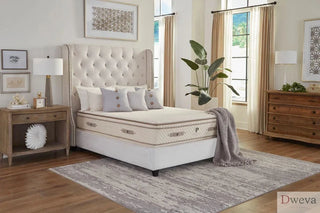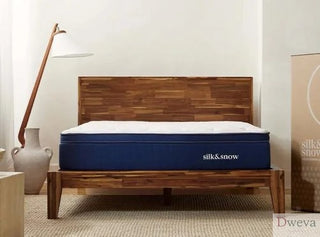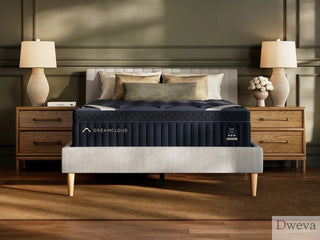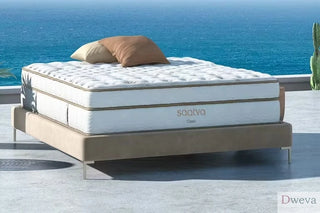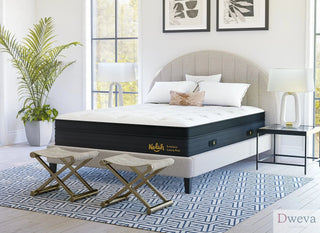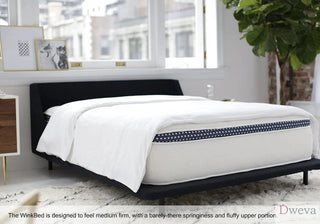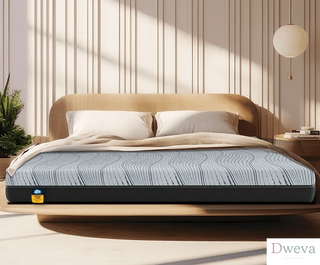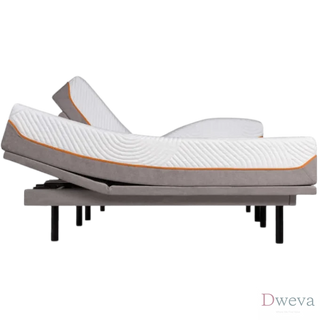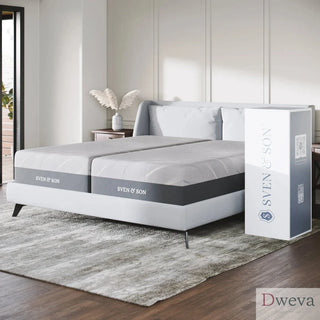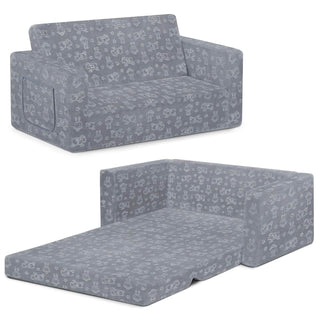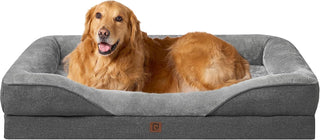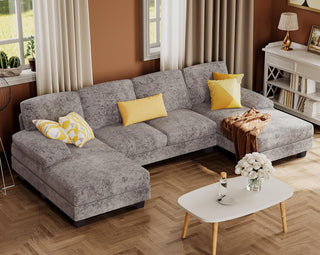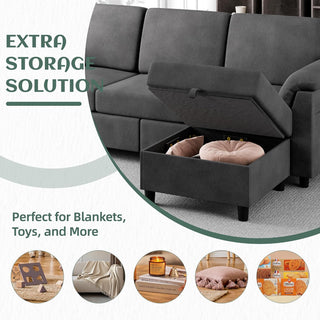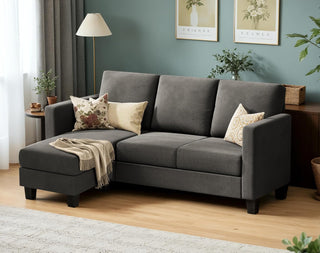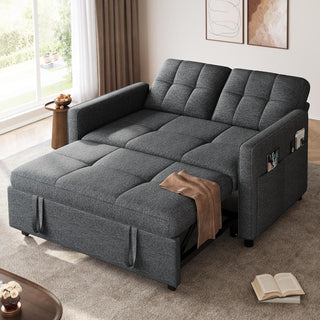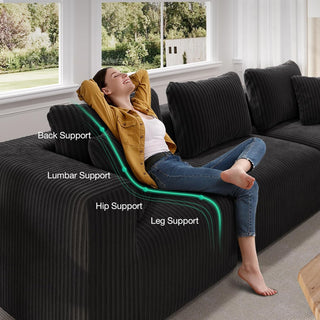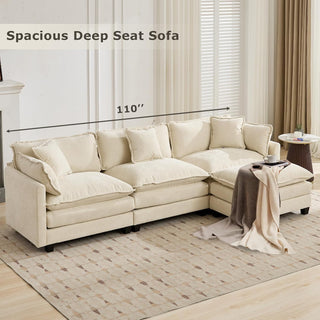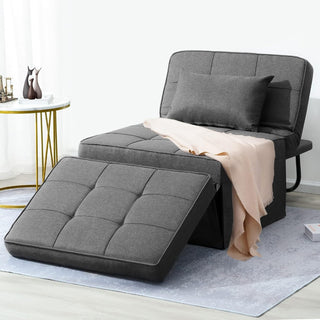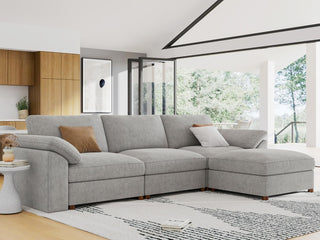There are several factors to consider when aiming for a good night’s sleep, ranging from maintaining a consistent bedtime and wake-up time to cultivating a relaxing sleep environment with a comfortable mattress. A crucial aspect of achieving restful sleep? What happens to your body during the night.
Would you like to delve into the science of sleep? From understanding the processes your body undergoes while you sleep to learning whether yawning is contagious, keep reading to explore how sleep impacts our daily lives!
How Sleep Functions
When falling asleep at night, it may seem like your brain and body are simply “shutting down” for a few hours. However, a complex array of processes takes place within your body while you sleep—some of which are visible, while others are not so obvious. While you may be dreaming (which you might or might not recall) and possibly snoring, your body is also consolidating memories, repairing cells, and performing many other vital tasks.

As you sleep, your body transitions through various sleep stages: Non-REM (NREM) sleep and rapid eye movement (REM) sleep. Roughly 75% to 80% of your sleep time is spent in NREM, also known as deep sleep (Stage 3), which is part of the slow-wave sleep cycle.
According to the National Institute of Neurological Disorders and Stroke, these stages are described as follows:
- Stage 1: A light sleep stage where it’s easy to be awakened.
- Stage 2: Your body temperature decreases, and your breathing and heart rate slow down.
- Stage 3: Known as the “deepest and most restorative sleep.” During this stage, blood pressure drops, muscles relax, breathing slows, and hormones are released.
- Stage 4: About 90 minutes after falling asleep, you reach REM sleep.
REM sleep is marked by rapid eye movements. Your breathing quickens and becomes irregular, while your brain remains highly active and dreams may occur.
“Signals are transmitted to the brain’s cerebral cortex, which governs learning, thinking, and organizing information,” explains the National Institutes of Health (NIH). “Additionally, signals are sent to the spinal cord to inhibit muscle movement, resulting in temporary paralysis in the arms and legs.”
Once REM sleep is completed, a full sleep cycle concludes and the body returns to Stage 1.
Each of these stages involves various processes in your brain and muscles. Additionally, your hormones and nervous system remain active throughout the night. This article will explore the body’s activity during sleep, from brain activity to muscle repair, and the functioning of different organs.
The Brain
As expected, a great deal occurs in the brain while we sleep—not just during dreaming. The NIH reports that different sleep stages correspond with distinct brainwave patterns. During Stage 1 and Stage 2, brainwaves slow down, reaching their lowest point during deep sleep (Stage 3).

When REM sleep begins, however, brain activity “approaches levels similar to when you’re awake.” In some cases, people may even physically act out their REM dreams.
“A small group of cells in the brainstem, called the subcoeruleus nucleus, is responsible for REM sleep,” explains Scientific American. “If these cells are damaged or diseased, individuals may not experience the muscle paralysis associated with REM sleep, which can lead to REM sleep behavior disorder—a severe condition where people physically act out their dreams.”
Memories
Sleep plays a crucial role in memory consolidation. Memory and learning occur in three stages:
- Acquisition: Introducing new information to the brain.
- Consolidation: Stabilizing the memory.
- Recall: The ability to access the information or memory after it has been stored.
The quality of your sleep impacts both acquisition and consolidation. According to Dr. Matthew Walker, a sleep expert from the University of California, Berkeley, sleep before learning prepares the brain to form memories. Following learning, sleep is essential for embedding new information, making it less likely to be forgotten.
Body Temperature Regulation
The brain also regulates your body temperature during sleep through the hypothalamus. As noted by MedLine Plus, the hypothalamus oversees temperature, appetite, sex drive, and the sleep-wake cycle (Circadian Rhythm). During Stage 2 sleep, your body temperature begins to drop, thanks to signals from your brain.
A 2017 study published in Neuroscience Research discusses how two types of neurons in the hypothalamus help maintain wakefulness and regulate sleep/wakefulness.
Dreaming
Dreaming, of course, involves the brain as well. While the exact purpose of dreams is still unknown, research suggests that dreaming may be tied to memory consolidation.

Studies have shown that brain waves during dreaming exhibit specific patterns. “When participants were dreaming, they exhibited a decrease in low-frequency brain waves and an increase in high-frequency brain waves, particularly in the posterior hot zone.”
Hormones
Melatonin is a primary hormone associated with sleep. Produced by the pineal gland, melatonin secretion is regulated by light exposure. Research published in the British Journal of Pharmacology in 2018 explains that the light-sensitive production of melatonin signals the body’s transition to night, triggering sleep-related functions like lower blood pressure and metabolism.

This connection to light explains why avoiding blue light from electronic devices before bedtime can help improve sleep quality. Devices that emit this blue light can interfere with melatonin production, making it harder to fall asleep. To enhance sleep quality, it’s recommended to limit screen time before bed and opt for reading a book or listening to an audiobook.
Melatonin’s relationship with light is also helpful for managing jet lag. A brief walk in the sunlight can help reset your internal clock during daytime fatigue. Similarly, keeping your room dark at night promotes melatonin production, aiding in sleep initiation.
Cortisol, a stress-related hormone, is also linked to sleep. Research shows that insufficient sleep leads to elevated cortisol levels, which are associated with weakened immune function, cognitive impairment, and metabolic disturbances.
Immune System
Have you ever heard that lack of sleep can make you more susceptible to illness? It turns out, that’s not just a myth. According to the Mayo Clinic, inadequate sleep can increase your chances of getting sick after exposure to a virus. Additionally, it can delay recovery from illness.

Harvard Health reports that sleep deprivation heightens levels of inflammatory markers and increases vulnerability to infections. While scientists are still studying these interactions, evidence suggests that a lack of sleep may reduce the body’s ability to fight off infections.
Organs & Muscles
Sometimes as you drift to sleep, you may experience a sudden, full-body jerk that wakes you up. This is known as a hypnagogic jerk or sleep start—a normal muscle spasm. Though this is typically harmless, it can also be a symptom of more complex sleep disorders like restless leg syndrome, which might require medical attention.
Sleep is critical for muscle growth and recovery. After strength training, your muscles repair and grow during sleep. It also plays an essential role in athletic performance, helping reduce injury risk and improving physical abilities like speed and stamina.
During REM sleep, your muscles are temporarily paralyzed, preventing you from acting out your dreams. Your eyes may move rapidly behind closed eyelids, which some theorize reflects the vivid scenes in your dreams.
Some individuals even sleep with their eyes partially open. This may be caused by eyelid issues or facial nerve problems. According to the American Academy of Ophthalmology, even a slight opening of the eyelids during sleep can lead to dry eyes, which may result in irritation or discomfort upon waking.

Heart
Your heart continues to function during sleep, albeit at a slower pace. During deep sleep, your heart rate drops, but it speeds up again during REM sleep. Research by UCLA Health reveals that blood pressure and heart rate fluctuate during this stage, particularly if you experience a nightmare that causes an abrupt awakening.
Kidneys
The kidneys maintain their filtration duties during sleep, managing blood and urine production. Dr. Ciaran McMullan, M.D., explains that kidney function follows the sleep-wake cycle, which is important for coordinating the kidneys' workload over 24 hours. Sleep deprivation has been shown to accelerate kidney function decline.
Lungs
Your lungs work continuously while you sleep, ensuring steady blood oxygen levels. However, sleep-related breathing disorders, such as sleep apnea or COPD, can disrupt normal breathing. Cleveland Clinic outlines that conditions like emphysema or chronic bronchitis may be exacerbated by these sleep issues.
Dr. Amy Attaway, a pulmonologist, notes that individuals with COPD may experience significant energy expenditure just to breathe, affecting overall rest quality.
Weird Things People Do In Their Sleep
Unexpected things can occur while sleeping, including:
Snoring

According to the Mayo Clinic, snoring happens when “air flows past relaxed tissues in your throat, causing the tissues to vibrate as you breathe.” Several factors contribute to snoring, including the anatomy of your mouth and throat, alcohol consumption, sleep position, and nasal issues. If your snoring is disturbing your sleep or waking you up during the night, try sleeping on your side or consult a doctor to determine if it’s linked to obstructive sleep apnea (OSA).
Sleepwalking
Getting out of bed and moving around while asleep doesn’t just happen in cartoons. In fact, research shows that sleepwalking affects around 2%–4% of adults and 15% of children.
If you are prone to sleepwalking or live with someone who is, it’s essential to recognize the potential safety risks, such as falling or injuring oneself. It’s a good idea to consult with a doctor for treatment or take steps to make your home safer for sleepwalkers.
Sleep Eating
Believe it or not, people can eat while asleep—this condition is called Nocturnal Sleep-Related Eating Disorder (NS-RED). It happens when individuals consume food during sleep without being fully aware. This behavior is typically associated with sleepwalking and can interfere with nutrition, cause feelings of guilt, and lead to unintentional weight gain.
While the exact causes are unclear, researchers have linked sleep eating to conditions like restless leg syndrome and sleepwalking.
Sleep Talking
Sleep talking is relatively common, with many individuals unaware they do it until someone else points it out. Sometimes, sleep talking consists of gibberish, while other times it might resemble a full conversation. This phenomenon is often triggered by dreaming, though the precise cause remains uncertain. Fortunately, sleep talking is generally harmless.
Sleep Texting
The digital age has altered how we live, and many people use their phones for nearly everything, including as an alarm clock. As a result, some individuals may discover they’ve sent text messages while asleep without being aware of it.
Bottom Line
While it may seem like sleep is a period of inactivity, the reality is far from that. Your body is actively working to circulate oxygen, repair cells, grow and restore muscles, filter blood, and perform various essential tasks during sleep.

There are still many aspects of sleep that remain mysterious, particularly regarding brain activity and dreaming. If you notice unusual behavior during sleep or are concerned about certain sleep-related phenomena, consulting with a doctor can help determine the underlying cause and how to address it. For instance, if you frequently wake up with discomfort, such as dry eyes or a sore throat, it might be worthwhile to seek medical advice.
To better understand your sleep patterns, consider keeping a sleep diary. This can be done on paper, using an app, or with a spreadsheet—whichever method suits you best. For a few weeks, track your bedtime, wake-up time, and sleep quality. Additionally, note things like dinner time, caffeine consumption, late-night snacks, phone use before bed, stress levels, and naps taken throughout the day.
After gathering data over several days or weeks, look for patterns. For example, do you toss and turn after a heavy meal, or do you wake up multiple times after drinking alcohol? Recognizing these patterns can help you make adjustments for better sleep.
For those experiencing sleep difficulties, doctors often recommend improving sleep hygiene. Sleep hygiene refers to habits that promote falling asleep quickly and maintaining high-quality sleep. Common sleep hygiene practices include:
- Avoiding alcohol, caffeine, and heavy meals close to bedtime
- Steering clear of blue light from phones, tablets, TVs, and computers at least an hour before bed
- Going to bed and waking up at the same time each day, even on weekends
- Establishing a bedtime routine to unwind, such as listening to music, reading, stretching, or drinking herbal tea
- Using the bed solely for sleep or intimate activities
- Ensuring your bedroom is cool, dark, and quiet—using blackout shades, eye masks, earplugs, white noise, or a fan as needed
- Exercising earlier in the day to feel tired at night
- Managing stress and anxiety to prevent it from interfering with sleep
- Getting out of bed for a relaxing activity if you’re awake for more than 20 minutes, and returning once you feel tired again
You can find additional sleep hygiene tips online or by consulting with a physician or certified sleep coach.
FAQs
Are You Sleeping Too Much?
The Centers for Disease Control and Prevention (CDC) recommends that young adults get 8 to 10 hours of sleep each night and adults aim for at least 7 hours. But what happens if you regularly sleep much longer?
Can You Catch Up on Sleep Over the Weekend?
Heard of sleep debt? Scientific American defines it as the difference between the sleep you should be getting and the amount you actually get. It’s a deficit that grows every time you skimp on sleep. However, catching up on sleep isn’t as simple as sleeping longer on weekends.
Does Counting Sheep Really Help You Go to Sleep?
The idea of counting sheep has been around for ages, but does it actually help you fall asleep faster? Research suggests that counting sheep isn’t the most effective sleep aid.
How Does Lack of Sleep Affect Your Mood?
Sleep deprivation is known to impact mood significantly. Those who are sleep-deprived often feel grumpy, irritable, sluggish, and emotionally off. Lack of sleep has also been linked to anxiety and even depression.
What Are the Benefits of Getting More Sleep?
We spend about one-third of our lives sleeping. It’s a time when our body rests, recharges, and recovers. Adults should aim for 7 to 8 hours of sleep per night, yet many get less than 6 hours.
What Would Happen if You Didn’t Sleep?
What happens when we skip sleep? It’s not just uncomfortable—it can have serious consequences on our health. Research indicates that going without sleep negatively affects both our minds and bodies.



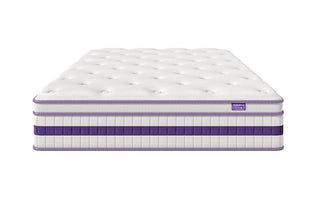
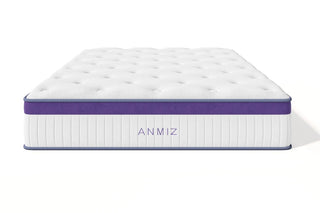
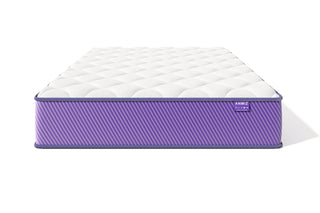


 https://dweva.com
https://dweva.com
